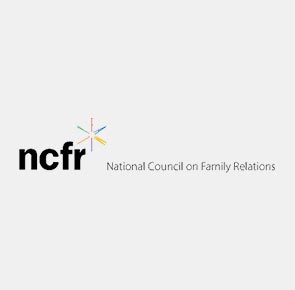What Does a Career in Marriage and Family Counseling Entail?
Sometimes, a marriage or a family can benefit from a highly trained, unbiased, and objective third-party to observe and make healthy recommendations as to ways to improve such relationships. Trouble in relationships occur for any number of reasons such as death, betrayal, and child behavioral issues. While a friend may be a great listener and give seemingly helpful advice, only licensed therapists, such as marriage and family therapists or others experienced in family counseling, can truly help couples and families resolve their issues at the core so that they do not resurface time and time again. In a safe space, whether participating in therapy alone or together with group counseling methods, all individuals can heal and communicate to improve their relationships and more easily succeed in life. A marriage and family therapist helps to transform the family dynamics and partner dynamic into a healthy, productive, and meaningful adventure of life they experience together.
Marriage and family therapists will work with individuals, couples, and families to help resolve issues that are based on miscommunication or mental health to improve the patient’s overall well-being and quality of life. The underlying issues that may cause someone to seek such a marriage and family therapy specialist will vary greatly such as individual and family development, anxiety, depression, mental health issues, domestic violence, adolescent or child behavioral problems, infertility, LGBTQ concerns, broken family systems, substance abuse, or marital conflict. It is an excellent way for people to share their emotions and experiences without judgment from others.
It is the role of the marriage and family therapist to help find positive solutions that play on the strengths of the patients as a way to resolve problems in a calming and objective manner. A therapist with marriage and family therapy licensure will observe the ways patients interact, evaluate each situation, resolve problems, act as a guide through difficult crises, point out problem areas and patterns of behavior, and provide healthy alternatives to existing problematic behaviors. It is also important to note that a therapist cannot allow their personal feelings and personal lives to influence their professional behavior and guidance when they offer counseling services. If you choose this career path, you must be able to compartmentalize your feelings to remain unbiased and objective at all times. Prospective students should keep in mind that their marriage and family therapy program or family counseling program is preparing them for a stressful but fulfilling role.
Featured Online Family Counseling Programs
Top 25 Best Online Masters in Marriage & Family Therapy Programs
Northwestern University
Score: 93.83
- Graduate Tuition
- In-State: $52,698
- Out-of-State:$52,698
- Net Price: $23,341
- Acceptance Rate: 7%
- Retention Rate: 97%
- Graduation Rate: 96%
- Total Enrollment: 23,203
- Undergrad Students: 9,157
- Graduate Students: 14,046
- Grads Salary: $89,000
- Student-to-faculty: 6:1
Arizona State University
Score: 76.14
- Graduate Tuition
- In-State: $12,376
- Out-of-State:$25,722
- Net Price: $16,401
- Acceptance Rate: 90%
- Retention Rate: 85%
- Graduation Rate: 68%
- Total Enrollment: 79,593
- Undergrad Students: 65,174
- Graduate Students: 14,419
- Grads Salary: $77,000
- Student-to-faculty: 18:1
California State University-Northridge
Score: 75.91
- Graduate Tuition
- In-State: $7,176
- Out-of-State:$16,680
- Net Price: $8,222
- Acceptance Rate: 93%
- Retention Rate: 74%
- Graduation Rate: 56%
- Total Enrollment: 37,760
- Undergrad Students: 32,429
- Graduate Students: 5,331
- Grads Salary: $81,000
- Student-to-faculty: 21:1
Texas Tech University
Score: 75.89
- Graduate Tuition
- In-State: $6,956
- Out-of-State:$15,356
- Net Price: $16,773
- Acceptance Rate: 71%
- Retention Rate: 85%
- Graduation Rate: 67%
- Total Enrollment: 40,773
- Undergrad Students: 32,635
- Graduate Students: 8,138
- Grads Salary: $76,000
- Student-to-faculty: 21:1
Drexel University
Score: 75.21
- Graduate Tuition
- In-State: $36,234
- Out-of-State:$36,234
- Net Price: $42,342
- Acceptance Rate: 78%
- Retention Rate: 90%
- Graduation Rate: 77%
- Total Enrollment: 21,703
- Undergrad Students: 13,589
- Graduate Students: 8,114
- Grads Salary: $84,000
- Student-to-faculty: 9:1
Syracuse University
Score: 74.75
- Graduate Tuition
- In-State: $44,928
- Out-of-State:$44,928
- Net Price: $51,520
- Acceptance Rate: 42%
- Retention Rate: 91%
- Graduation Rate: 81%
- Total Enrollment: 22,948
- Undergrad Students: 15,739
- Graduate Students: 7,209
- Grads Salary: $85,000
- Student-to-faculty: 15:1
Pepperdine University
Score: 74.46
- Graduate Tuition
- In-State: $41,400
- Out-of-State:$41,400
- Net Price: $52,216
- Acceptance Rate: 50%
- Retention Rate: 86%
- Graduation Rate: 85%
- Total Enrollment: 9,545
- Undergrad Students: 3,629
- Graduate Students: 5,916
- Grads Salary: $84,000
- Student-to-faculty: 13:1
Indiana Wesleyan University
Score: 73.03
- Graduate Tuition
- In-State: $11,970
- Out-of-State:$11,970
- Net Price: $23,364
- Acceptance Rate: 82%
- Retention Rate: 79%
- Graduation Rate: 66%
- Total Enrollment: 2,207
- Undergrad Students: 2,079
- Graduate Students: 128
- Grads Salary: $75,000
- Student-to-faculty: 12:1
Western Michigan University
Score: 71.85
- Graduate Tuition
- In-State: $18,354
- Out-of-State:$27,531
- Net Price: $20,183
- Acceptance Rate: 85%
- Retention Rate: 80%
- Graduation Rate: 58%
- Total Enrollment: 16,693
- Undergrad Students: 13,026
- Graduate Students: 3,667
- Grads Salary: $76,000
- Student-to-faculty: 16:1
Messiah University
Score: 71.6
- Graduate Tuition
- In-State: $13,590
- Out-of-State:$13,590
- Net Price: $29,882
- Acceptance Rate: 78%
- Retention Rate: 85%
- Graduation Rate: 78%
- Total Enrollment: 3,344
- Undergrad Students: 2,586
- Graduate Students: 758
- Grads Salary: $68,000
- Student-to-faculty: 12:1
University of Massachusetts-Boston
Score: 71.37
- Graduate Tuition
- In-State: $19,366
- Out-of-State:$37,800
- Net Price: $17,554
- Acceptance Rate: 83%
- Retention Rate: 73%
- Graduation Rate: 51%
- Total Enrollment: 15,810
- Undergrad Students: 12,373
- Graduate Students: 3,437
- Grads Salary: $78,000
- Student-to-faculty: 15:1
University of Colorado Denver
Score: 71.02
- Graduate Tuition
- In-State: $8,100
- Out-of-State:$25,200
- Net Price: $15,303
- Acceptance Rate: 78%
- Retention Rate: 71%
- Graduation Rate: 47%
- Total Enrollment: 23,409
- Undergrad Students: 14,027
- Graduate Students: 9,382
- Grads Salary: $78,000
- Student-to-faculty: 16:1
John Brown University
Score: 70.12
- Graduate Tuition
- In-State: $14,520
- Out-of-State:$14,520
- Net Price: $21,464
- Acceptance Rate: 68%
- Retention Rate: 84%
- Graduation Rate: 67%
- Total Enrollment: 2,341
- Undergrad Students: 1,882
- Graduate Students: 459
- Grads Salary: $65,000
- Student-to-faculty: 16:1
Lamar University
Score: 69.07
- Graduate Tuition
- In-State: $6,471
- Out-of-State:$13,815
- Net Price: $10,999
- Acceptance Rate: 86%
- Retention Rate: 61%
- Graduation Rate: 37%
- Total Enrollment: 17,473
- Undergrad Students: 7,998
- Graduate Students: 9,475
- Grads Salary: $80,000
- Student-to-faculty: 18:1
Abilene Christian University
Score: 67.11
- Graduate Tuition
- In-State: $24,174
- Out-of-State:$24,174
- Net Price: $28,311
- Acceptance Rate: 64%
- Retention Rate: 80%
- Graduation Rate: 60%
- Total Enrollment: 5,114
- Undergrad Students: 3,188
- Graduate Students: 1,926
- Grads Salary: $67,000
- Student-to-faculty: 13:1
Regent University
Score: 65.99
- Graduate Tuition
- In-State: $16,128
- Out-of-State:$16,128
- Net Price: $18,314
- Acceptance Rate: 41%
- Retention Rate: 66%
- Graduation Rate: 54%
- Total Enrollment: 10,168
- Undergrad Students: 4,577
- Graduate Students: 5,591
- Grads Salary: $63,000
- Student-to-faculty: 20:1
North Central University
Score: 65.21
- Graduate Tuition
- In-State: $10,800
- Out-of-State:$10,800
- Net Price: $23,694
- Acceptance Rate: 91%
- Retention Rate: 78%
- Graduation Rate: 64%
- Total Enrollment: 984
- Undergrad Students: 865
- Graduate Students: 119
- Grads Salary: $60,000
- Student-to-faculty: 11:1
Lee University
Score: 65
- Graduate Tuition
- In-State: $16,470
- Out-of-State:$16,470
- Net Price: $20,222
- Acceptance Rate: 72%
- Retention Rate: 81%
- Graduation Rate: 61%
- Total Enrollment: 3,680
- Undergrad Students: 3,253
- Graduate Students: 427
- Grads Salary: $56,000
- Student-to-faculty: 12:1
Grand Canyon University
Score: 63.97
- Graduate Tuition
- In-State: $10,138
- Out-of-State:$10,138
- Net Price: $22,239
- Acceptance Rate: 60%
- Retention Rate: 68%
- Graduation Rate: 43%
- Total Enrollment: 107,563
- Undergrad Students: 70,929
- Graduate Students: 36,634
- Grads Salary: $70,000
- Student-to-faculty: 21:1
Walden University
Score: 62.95
- Graduate Tuition
- In-State: $10,160
- Out-of-State:$10,160
- Net Price: $20,510
- Acceptance Rate: 100%
- Retention Rate: 52%
- Graduation Rate: 32%
- Total Enrollment: 44,223
- Undergrad Students: 7,362
- Graduate Students: 36,861
- Grads Salary: $84,000
- Student-to-faculty: 30:1
Liberty University
Score: 62.93
- Graduate Tuition
- In-State: $7,740
- Out-of-State:$7,740
- Net Price: $29,692
- Acceptance Rate: 99%
- Retention Rate: 79%
- Graduation Rate: 63%
- Total Enrollment: 103,068
- Undergrad Students: 52,823
- Graduate Students: 50,245
- Grads Salary: $63,000
- Student-to-faculty: 18:1
UMass Global
Score: 62.21
- Graduate Tuition
- In-State: $12,762
- Out-of-State:$12,762
- Net Price: $31,715
- Acceptance Rate: 100%
- Retention Rate: 42%
- Graduation Rate: 50%
- Total Enrollment: 9,069
- Undergrad Students: 5,511
- Graduate Students: 3,558
- Grads Salary: $82,000
- Student-to-faculty: 28:1
Touro University Worldwide
Score: 61.24
- Graduate Tuition
- In-State: $9,000
- Out-of-State:$9,000
- Net Price: $18,428
- Acceptance Rate: 100%
- Retention Rate: 78%
- Graduation Rate: 42%
- Total Enrollment: 2,357
- Undergrad Students: 451
- Graduate Students: 1,906
- Grads Salary: $61,000
- Student-to-faculty: 11:1
National University
Score: 60.48
- Graduate Tuition
- In-State: $16,794
- Out-of-State:$16,794
- Net Price: $30,527
- Acceptance Rate: 100%
- Retention Rate: 64%
- Graduation Rate: 22%
- Total Enrollment: 10,518
- Undergrad Students: 98
- Graduate Students: 10,420
- Grads Salary: $80,000
- Student-to-faculty: 1:1
University of West Alabama
Score: 59.59
- Graduate Tuition
- In-State: $6,678
- Out-of-State:$13,356
- Net Price: $14,781
- Acceptance Rate: 87%
- Retention Rate: 61%
- Graduation Rate: 38%
- Total Enrollment: 6,194
- Undergrad Students: 2,673
- Graduate Students: 3,521
- Grads Salary: $61,000
- Student-to-faculty: 17:1
How to Earn an Online Degree in Marriage and Family Therapy
You can take the process of earning a degree in marriage and family therapy (MFT) as quickly or as slowly as you like. Some people will start with an associate’s degree and work to gain experience in entry-level positions. They will then become a part-time student while they work to complete their next degrees. Other individuals will enroll as a full-time student and start with a bachelor’s degree. Both methods reach the same outcome in the end. You have to determine which path is right for you.
Typical Marriage and Family Therapy Degree Requirements
Each state will have varying degree, licensing and work requirements for marriage and family therapists. The majority of the states will require at least a master’s degree in marriage and family therapy. It is important to note that many accredited colleges and universities do not offer degrees specifically in marriage and family therapy. If you are unable to find a regionally accredited online college or university or a traditional higher learning institute near you with an accredited degree in marriage and family therapy, you might consider other degrees, such as psychiatry, psychology, or clinical social work.
Typical Marriage and Family Therapy Certifications Needed
Some states will allow you to work entry-level jobs without a license. Certifications are not a requirement to become a marriage and family therapist; however, they may help you to become employed in the field. Either way, you will have to obtain a license in most states before you are legally able to begin offering counseling services.
Search Programs Offering Family Counseling Majors
Academic Standards for Marriage and Family Therapy Degrees
 Most licensing bodies will require at least a 3.0 GPA to be considered eligible to sit for the examination. This is the equivalent to a B average. You will also be required to possess a minimum GPA from your bachelor’s degree to enter either a master’s degree program or a Ph.D. program. This will vary from school to school. Be sure to strive to maintain a minimum cumulative GPA of 3.0 throughout your educational career; however, some higher learning institutions will require a higher GPA to pursue a graduate degree. Check with the colleges and universities you would like to attend as a graduate student as soon as you know you want to become a marriage and family therapist.
Most licensing bodies will require at least a 3.0 GPA to be considered eligible to sit for the examination. This is the equivalent to a B average. You will also be required to possess a minimum GPA from your bachelor’s degree to enter either a master’s degree program or a Ph.D. program. This will vary from school to school. Be sure to strive to maintain a minimum cumulative GPA of 3.0 throughout your educational career; however, some higher learning institutions will require a higher GPA to pursue a graduate degree. Check with the colleges and universities you would like to attend as a graduate student as soon as you know you want to become a marriage and family therapist.
Exam/Experience Needed for Marriage and Family Therapy Degrees
 After completing your counseling degree requirements, you must complete clinical experience, a state licensing exam, and continue your education. Some states require clinical experience before the licensure and some after the exam. The necessary clinical experience required is typically two years. You can choose to volunteer your services or to work for any agency that offers mental health services, such as a private practice, a non-profit, a college or a charitable organization. All clinical experience must be supervised by a professional in social work, psychology, or Marriage and Family Therapy (MFT).
After completing your counseling degree requirements, you must complete clinical experience, a state licensing exam, and continue your education. Some states require clinical experience before the licensure and some after the exam. The necessary clinical experience required is typically two years. You can choose to volunteer your services or to work for any agency that offers mental health services, such as a private practice, a non-profit, a college or a charitable organization. All clinical experience must be supervised by a professional in social work, psychology, or Marriage and Family Therapy (MFT).
The licensing exam will vary from state to state. Some states will administer their own examination based on the areas in which they feel are most important for a marriage and family therapist. Other states will use the American Association of Marital and Family Therapy (AAMFT) exam to test the abilities of a potential therapist, such as ethics, treatment intervention, and diagnosis. Depending on the state, you might also be tested on laws and regulations.
Continuing education is also required by many states to maintain therapy licensure. You might consider completing professional development certifications, attending seminars and conferences, or working toward a certification or degree in a new specialty that will complement your existing skill set and make you an even better marriage and family therapist. You can also meet the continued education requirements by teaching and supervising others.
Online Associate's Degree
If you start with an online associate degree rather than completing an online bachelor’s degree, you must complete a two-year program that is related to marriage and family therapy. This might include human services, psychology, social services, or others. Be sure to attend an accredited online two-year program to increase the likelihood that your degree credits will transfer so that you do not have to retake courses. An online associate degree will also allow you to begin working entry-level jobs within certain areas of marriage and family support fields until you complete your bachelor’s and master’s degrees.
Example Courses:
- Counseling
- Child Welfare
- Family Services
- Child Protection
Online Bachelor’s Degree
An online bachelor’s degree is essential prior to the start of a master’s degree. It is possible to select a degree of any kind as long as you complete as many courses as possible in subjects related to MFT. To increase your chances of becoming accepted into your top preferences for a master’s degree program, you should choose a degree more closely related to MFT.
Example Courses:
- Mental Health/History of Psychology
- Child/Developmental Psychology
- Abnormal Psychology
- Industrial/Organizational Psychology
Online Master’s Degree
A master’s degree in MFT is ideal to become a licensed marriage and family therapist. It is possible to select another degree that is closely related to MFT. You should also consider whether or not you prefer an online degree or a traditional classroom environment. If you do not have easy access to a traditional classroom program in MFT, an online degree may be your optimal choice.
Example Courses:
- Substance Abuse/Addictions and Critical Issues in Systems Theory
- Theories of Marital and Family Therapy
- Group Psychotherapy
- Human Sexuality and Gender
Online Doctoral Degree
A Ph.D. is not a requirement for a career in MFT; however, it can lead to significantly higher pay and greater career opportunities. Anyone with a degree of any kind can be accepted into a Ph.D. program to become a marriage and family therapist. If you completed a bachelor’s degree or a master’s degree in a related MFT field, you are far more likely to reduce the time it takes to complete a Ph.D. program. A Ph.D. is not a requirement for an MFT licensure; however, it is a requirement to work in academia whether as a professor or in clinical research. This highest MFT degree will also allow for therapists to treat their patients with non-serious or non-traumatic medical conditions.
Example Courses:
- Issues and Trends in Counseling Research
- Child and Adolescent Intervention
- Advanced Couple and Family Therapy
- Social Context and Family Research
Earning Potential for Marriage and Family Therapist Degree Fields and Occupations
Your earning potential will vary based on a wide variety of factors. While completing an associate’s degree to enter the workforce earlier to gain valuable relevant work experience is a great idea, if you wish to steadily advance your career throughout your lifetime, it is essential that you continue to complete degrees. A bachelor’s degree will increase your pay and make you eligible for better jobs with better long-term career opportunities. If you want to become a marriage and family therapist, nearly every state will require a master’s degree in MFT-related field with relevant clinical experience. Even if you do not practice MFT, this degree will increase your pay and allow you to advance your career in any field you choose to work within the MFT field.
Annual Salary by Occupation
| Occupation | Entry-Level Salary Range | Mid-Career Salary Range | Late-Career Salary Range |
|---|---|---|---|
| Family/Marriage Therapist | $49,500 | $57,800 | $65,000 |
| Clinical Manager, Mental Health | $58,000 | $71,300 | $76,000 |
| Practice Manager, Mental Health | $52,100 | $59,700 | $66,000 |
| Licensed Marriage and Family Therapist | $49,500 | $57,800 | $65,000 |
| Child and Family Therapist | $40,100 | $48,300 | $60,000 |
Marriage and Family Therapy Salaries by Occupation
The two most significant impacts on your pay will be your level of degree completion and your amount of relevant work experience. The more advanced degrees you complete the more money you will earn. The same is true of relevant work experience. It is important to note that someone with mid-level experience and a lower degree might earn the same as someone with an advanced degree and less experience. It is also important to consider that career advancement is often directly related to advanced degrees over work experience.
You are not limited to becoming a marriage and family therapist with a master’s in MFT. You can work in a wide variety of work environments, such as a private practice, schools, addiction treatment centers, medical centers, residential care facilities, and more.
Marriage and Family Therapy Occupations:
- Social Worker
A social worker is responsible for improving the wellbeing of a number of people, families, and communities. They work with such individuals to improve the skills and tools of program participants to use on their own to resolve problems. - Substance Abuse Counselor
A substance abuse counselor works with individuals who abuse drugs and alcohol, people with behavioral issues, and others with eating disorders. These counselors help people to overcome their issues on a long-term basis due to the nature of the patient’s potential for relapsing. - School Counselor
A school counseling professional has far more importance and value in the school system today than 20 years ago. These counselors work with students pertaining to their social and personal development, academic and career development, and more. The overall goal is to ensure each student has the best chance possible to leave school as a well-adjusted individual. - Marriage and Family Therapy Private Practice
In MFT private practice, you can work with more than just couples fighting or a teenager acting out. MFT practices can work with individuals who have problems of any kind that affect their relationships. They might even work with patients who have been injured or ill to better cope with the newly developed struggles in their lives as a result.
Important Questions to Ask (FAQ)
How long does it take to earn a Marriage and Family Therapy bachelor's degree online?
 A bachelor’s degree in MFT will take as long as any other bachelor’s degree, which is around four years if you attend as a full-time student. It is important to note that there is not an accredited online or traditional bachelor’s degree in marriage and family therapy. You must complete a related degree in other areas, such as psychology, behavioral science, counseling, or social work. You can major in a variety of related fields, such as family science, human development, family studies, or sociology. You will select your specialization in MFT during your master’s degree or your Ph.D. Before you select your degree and major, look into your ideal master’s or Ph.D. programs to determine which degrees they require for acceptance into their programs.
A bachelor’s degree in MFT will take as long as any other bachelor’s degree, which is around four years if you attend as a full-time student. It is important to note that there is not an accredited online or traditional bachelor’s degree in marriage and family therapy. You must complete a related degree in other areas, such as psychology, behavioral science, counseling, or social work. You can major in a variety of related fields, such as family science, human development, family studies, or sociology. You will select your specialization in MFT during your master’s degree or your Ph.D. Before you select your degree and major, look into your ideal master’s or Ph.D. programs to determine which degrees they require for acceptance into their programs.
How much does a Marriage and Family Therapy bachelor’s degree online cost?
You do not have to attend a special college or university to achieve an online bachelor’s degree in a related area of marriage and family therapy. The cost will be the same as the majority of bachelor’s degrees in any subject. The differences in cost will be whether or not you choose a public or private college or university and whether or not you have to pay in-state tuition or out-of-state tuition.
The following are the current bachelor’s degree costs:
- Public Four-Year (In-State) - $20,770
- Public Four-Year (Out-of-State) - $36,420
- Private Four-Year (Not-for-Profit) - $46,950
Find Your Online Family Counseling Program
Does the school have the major(s) you’re considering?
 To accomplish the goal of becoming a marriage and family therapist you must follow the right path. This starts with your bachelor’s degree. It is important to note that you will be less likely to be accepted into a mandatory master’s program if you do not have the right undergraduate degree. Psychology, social work, and counseling are three of the most common majors and degrees to pursue in undergrad. You might also consider family science, human development, family studies, or sociology. Research the master’s degree programs’ requirements of colleges and universities you want to pursue upon graduation before you make a final decision on a major or degree specialization.
To accomplish the goal of becoming a marriage and family therapist you must follow the right path. This starts with your bachelor’s degree. It is important to note that you will be less likely to be accepted into a mandatory master’s program if you do not have the right undergraduate degree. Psychology, social work, and counseling are three of the most common majors and degrees to pursue in undergrad. You might also consider family science, human development, family studies, or sociology. Research the master’s degree programs’ requirements of colleges and universities you want to pursue upon graduation before you make a final decision on a major or degree specialization.
How many students graduate “on time,” in four years?
The on-time graduation rate will vary from institution to institution. The graduation rate for most colleges and universities is made public. It is estimated that a marriage and family therapist will require a minimum of a 4-year bachelor’s degree, a 2 or 3-year master’s degree and 2 years of clinical experience before they can work on their own. Keep in mind these are minimums. Some states require a Ph.D. which adds several more years and some states require up to four years of clinical experience.
The amount of time it takes you to complete these requirements is entirely dependent on you. If you participate in degree programs as a full-time student, you increase your chance of accomplishing on-time graduation. If you work or take care of your children or an aging family member while you pursue a degree, it may take significantly longer.
What kind of accreditation does the online program hold? How is it regarded in the field?
 It will be critical to complete all degrees from regionally accredited colleges or universities. You might also consider the accreditation of the degree program. Some of the best will be accredited by the AAMFT, COAMFTE, or CACREP. All of these accreditations will make your degree more valuable in the eyes of employers or potential clients.
It will be critical to complete all degrees from regionally accredited colleges or universities. You might also consider the accreditation of the degree program. Some of the best will be accredited by the AAMFT, COAMFTE, or CACREP. All of these accreditations will make your degree more valuable in the eyes of employers or potential clients.
Software, Technology and Skills Needed
Software and technology skills are becoming increasingly important in the lives of therapists. Telemedicine is rapidly growing in popularity, particularly with those who are born after 1979. A good therapist today must be tech savvy to protect their business and to protect the privacy of their patients. You can use various tech tools to record notes, use as surveillance for security, provide online video sessions, and much more. You can even use apps with your patients to monitor any at-home assignments they may have. These tools will save you time and money in the end.
Marriage & Family Therapy Scholarships
-
Behavioral Health Academic Scholarships
Amount: $5,000 (1st Place); $2,500 (2nd Place & 3rd Place)
Deadline: April 30
Three Behavioral Health Academic Scholarships are offered by the American Addiction Centers in the value of $2,500 and $5,000. You can be either a part-time or full-time student in pursuit of a bachelor’s degree or a master’s degree in the fields of mental health. You must major in specific areas, such as marriage and family therapy, counseling, psychology, social work, nursing, and addiction studies.
-
Courtland C. Lee Multicultural Excellence Scholarship
Amount: $2,500
Deadline: February 15, 2021
The Courtland C. Lee Multicultural Excellence Scholarship is provided by the American Counseling Association. Eligible applicants must major in specific areas, such as school counseling, clinical mental health, counselor education, or marriage and family counseling or therapy. Applicants must also be a prospective or current Ph.D. candidate from an accredited college or university, possess academic good standing, and portray multicultural practice excellence.
-
Future Counselors of America Scholarship
Amount: $1,000
Deadline: June 30
The Future Counselors of America Scholarship is provided by DatingAdvice.com. Eligible applicants must be in pursuit of a degree in relationship counseling at the bachelor’s degree level or higher. Applicants must also possess a cumulative GPA of 3.5 and submit an essay about psychological issues directly related to online dating.
Professional Marriage and Family Therapy Organizations
- AAMFT
- NCFR
- AFTA

AAMFT
American Association for Marriage and Family Therapists
The American Association for Marriage and Family Therapists is a division of the American Counseling Association. This professional organization is designed to provide professional support to all practicing family counselors and therapists. They provide access to media products, forums, and publications. It allows industry professionals to collaborate and participate in professional activities.

NCFR
National Council on Family Relations
The National Council on Family Relations is entirely dedicated to the research, practice and education of family relations. This is a non-profit, multidisciplinary, and nonpartisan international association. Members are from a wide array of fields, including demographers, marriage and family therapists, parent and family educators, professors, social workers, researchers, health workers, clergy, teachers, and much more.

AFTA
American Family Therapy Academy
The American Family Therapy Academy joins international professionals of family therapy. This includes a wide array of industry professions, including academics, researchers, program directors, policymakers, and clinicians. This group offers mentorships, networking, collaborating, referral opportunities, academic journal publications, and more.
Online vs On-Campus vs Hybrid
The type of educational platform you choose will impact your options. You have to consider whether or not you can dedicate yourself as a full-time student or if you have to work full-time and go to college part-time. This can also be dependent on whether or not you have children or other family members to care for at home while you pursue your degrees. Your decision will also be influenced by your proximity to an accredited college or university with an online degree program that will be accepted toward your MFT licensure. It is also important to note that if you do choose an online degree, you may still have to attend certain activities and events on-campus a few times a year.
Frequently Asked Questions
Does the College Have Post Graduate Job Placement Help & Assistance?
Most reputable colleges and universities will have job placement and career development assistance. This may be in the form of a mentor, counselor, or online databases. They may offer networking events or have strategic relationships with other businesses and professionals that can help develop your career.
Why You Need to Consider the Rating/Accreditation Can Affect Your Salary
The rating and accreditation will impact your MFT future more than other degrees and careers. Accreditations are directly related to the quality of education that might be expected from future employers and potential patients. Individuals who graduate with a degree from accredited higher learning institutions and accredited online degree programs will make more money and build their client base far more easily in most instances.
Search All Programs


























